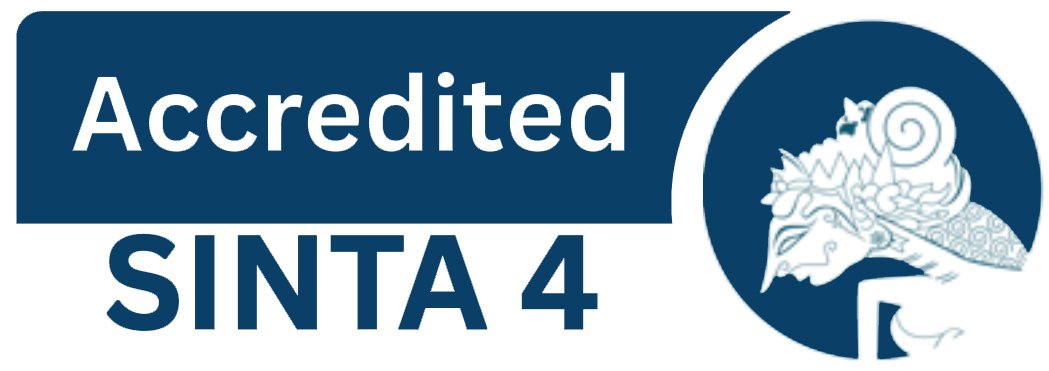Analisis Bibliometrik Resolusi Konflik di Sekolah Dasar Menggunakan Vosviewer Indexed by Google Scholar
DOI:
https://doi.org/10.22460/p2m.v10i2.4348Keywords:
Conflict resolution, elementary schoolsAbstract
Conflict resolution is a skill that needs to be developed at this time, especially for elementary school students. Conflict resolution can help students in dealing with various problems that occur in their daily lives. This study aims to find out the development of research on conflict resolution in elementary schools by conducting a bibliometric analysis of bibliographic data on research articles indexed by Google Scholar by combining analysis in terms of the distribution of bibliometric maps using VOSviewer software. The data filtering process was carried out based on the keywords "conflict resolution and primary education" contained in the topics, titles, keywords, and abstracts. The search was carried out on articles published from 2000 to 2022. From the search results, 24 relevant articles were obtained. The results showed that most research on conflict resolution in elementary schools was conducted in 2010. Research on conflict resolution in elementary schools is still very rare. Looking at these data, the opportunity to develop research on conflict resolution in elementary schools is huge. Therefore, this research is expected to provide references and considerations in seeking further research fields, especially those related to conflict resolution in elementary schools
References
Ramsbotham, O., Miall, H., & Woodhouse, T. (2011). Contemporary conflict resolution. Polity.
Behfar, K. J., Peterson, R. S., Mannix, E. A., & Trochim, W. M. (2008). The critical role of conflict resolution in teams: A close look at the links between conflict type, conflict management strategies, and team outcomes. Journal of applied psychology, 93(1), 170.
Humphreys, M. (2005). Natural resources, conflict, and conflict resolution: Uncovering the mechanisms. Journal of conflict resolution, 49(4), 508-537.
Crawford, D. K. (1996). Conflict resolution education: A guide to implementing programs in schools, youth-serving organizations, and community and juvenile justice settings: Program report. Office of Juvenile Justice and Delinquency Prevention, US Department of Justice.
Shanka, E. B., & Thuo, M. (2017). Conflict Management and Resolution Strategies between Teachers and School Leaders in Primary Schools of Wolaita Zone, Ethiopia. Journal of Education and Practice, 8(4), 63-74.
Vatansever Bayraktar, H., & Yılmaz, K. Ö. (2016). Investigation of primary school teachers’ conflict resolution skills in terms of different variables. Journal of Education and Training Studies.
Turnuklu, A., Kacmaz, T., Gurler, S., Sevkin, B., Turk, F., Kalender, A., & Zengin, F. (2010). The effects of conflict resolution and peer mediation training on primary school students' level of aggression. Education 3–13, 38(1), 13-22.
Trinder, M., Wertheim, E. H., Freeman, E., Sanson, A., Richardson, S., & Hunt, S. (2010). Comparison of the effectiveness of two forms of the enhancing relationships in school communities project for promoting cooperative conflict resolution education in Australian primary schools. Journal of Peace Education, 7(1), 85-105.
Sekerci, H., & Yilmaz, F. (2021). The Role of Respectful Behaviour in the Relationship between Empathetic Tendencies and Conflict Resolution in Primary School Students. Eurasian Journal of Educational Research, 93, 73-94.
Genç, O., & Hamedoğlu, M. A. (2012). The effect of conflict resolution strategies of the primary school principals on the motivation of the teachers (District of Gebze Sample). International Online Journal of Educational Sciences, 4(3), 612-616.
Santamaría-Villar, M. B., Gilar-Corbi, R., Pozo-Rico, T., & Castejón, J. L. (2021). Teaching socio-emotional competencies among primary school students: Improving conflict resolution and promoting democratic co-existence in schools. Frontiers in Psychology, 12, 659348.
Jorbozeh, H., Dehdari, T., Hassanzadeh, A., Taghdisi, M. H., & Hosseini, A. F. (2013). The effectiveness of the Peer Mediation model on empowering primary school students in conflict resolution. Life Sci J, 10(4), 217-22.
Haupt, G. (2018). Hierarchical thinking: A cognitive tool for guiding coherent decision making in design problem solving. International Journal of Technology and Design Education, 28(1), 207–237. https://doi.org/10.1007/s10798-016-9381-0



















